1) Worth its weight in gold
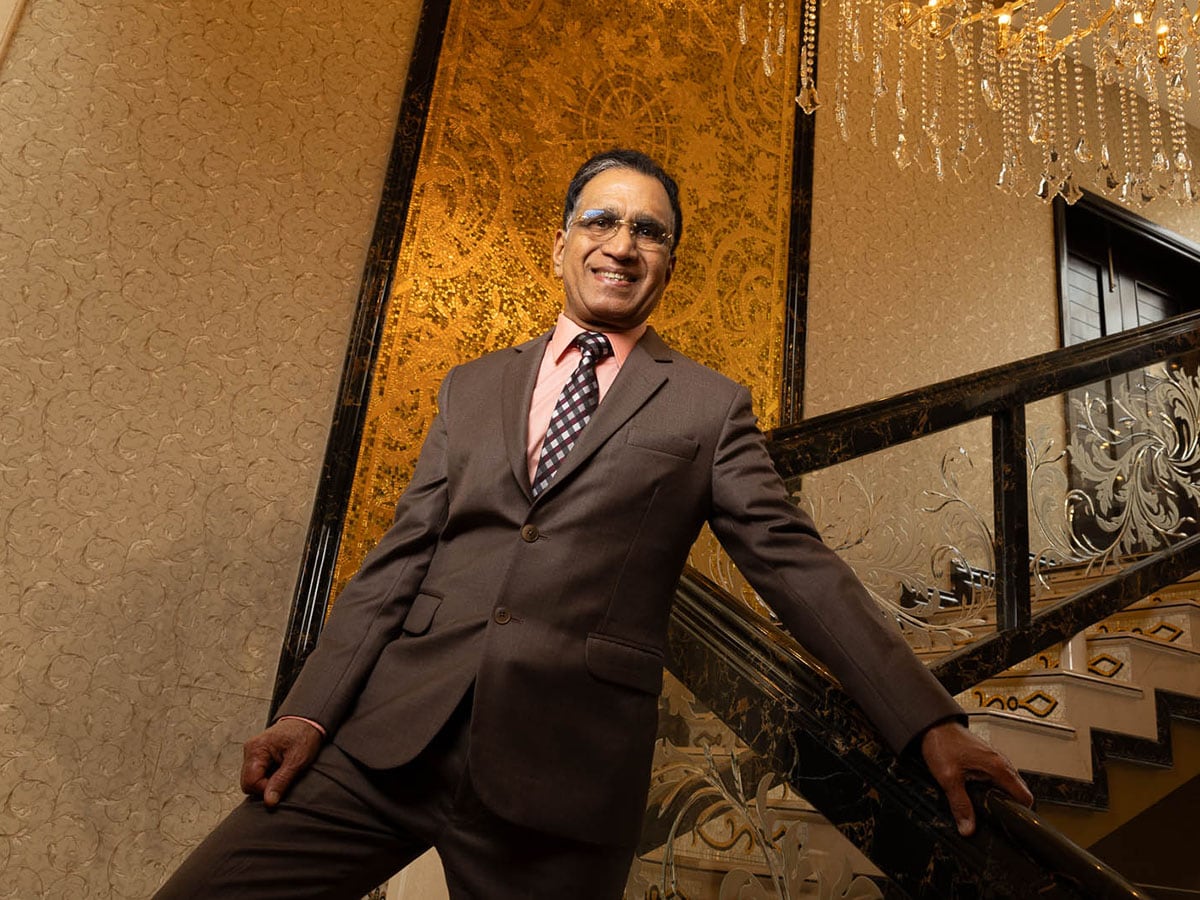 TS Kalyanaraman, Managing director, Kalyan Jewellers Image: Madhu Kapparath
TS Kalyanaraman, Managing director, Kalyan Jewellers Image: Madhu Kapparath
This week’s newsletter will feature a few stories about some of the spectacular journeys Indian billionaires have taken because we are celebrating the release of Forbes India’s 100 Richest 2024 issue. First up is TS Kalyanaraman, MD of Kalyan Jewellers. Kalyan Jewellers started operations in 1993 in Thrissur. Five years later, in 1998, bomb blasts in Coimbatore changed the course of the family business, which is now a Rs72,000 crore venture. This journey has made Kalyanaraman the richest Indian jeweller, with $5.38 billion in personal wealth and ranking 60 on the list. Here’s how a regional business became India’s No. 2 jewellery player.
2) The early-mover advantage
 Surender Saluja with son Chiranjeev (right), the managing director of Premier Energies Image: Vikas Chandra Pureti
Surender Saluja with son Chiranjeev (right), the managing director of Premier Energies Image: Vikas Chandra Pureti
Surender Saluja graduated with an engineering degree in 1969 and immediately embarked on an entrepreneurial path. For 26 years, Saluja was leading with a few small ventures, and in 1995, the idea that made him a billionaire dawned on him–sunlight is freely available, sustainable, and requires no raw material. Saluja set up Premier Energies in Hyderabad in 1995 when conversations about renewable clean energy were being murmured in various corners of the world. He began with solar lanterns and streetlights. Today, Premier Energies is India’s second-largest integrated solar module manufacturer and had a blockbuster listing on the bourses. Here’s how the early-mover advantage worked in Saluja’s favour.
3) Challenging times
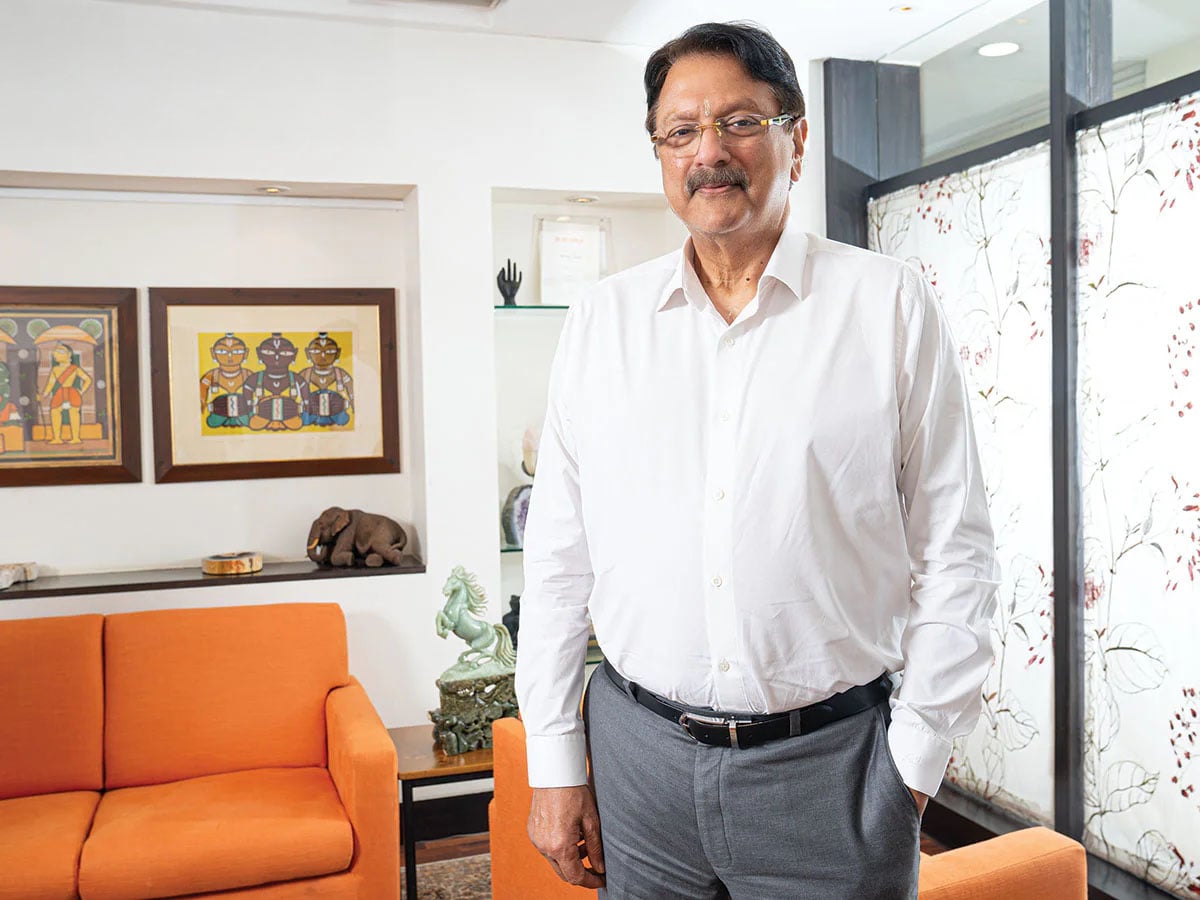 Ajay Piramal, chairman of PEL Image: Mexy Xavier
Ajay Piramal, chairman of PEL Image: Mexy Xavier
In 2024, India’s richest 100 tycoons have a collective wealth of over $1 trillion. They are twice as rich as they were in 2019. It all looks more than hunky dory as 83 billionaires on Forbes India’s 100 Richest list saw their wealth increase. But not everyone on the list has reasons to celebrate. Dhingras of Berger Paints, jeweller Joy Alukkas, and Piramal Enterprises’ (PEL) Ajay Piramal saw their wealth decrease in the past 12 months. The net worth of the chairman of PEL has been fluctuating in recent years, and he is now India’s 93rd wealthiest, with a net worth of $2.8 billion as of 2024. Here’s a story of how a roller-coaster ride in NBFC business cycles and risks has impacted Piramal’s fortunes.
Discover
1) Rising above
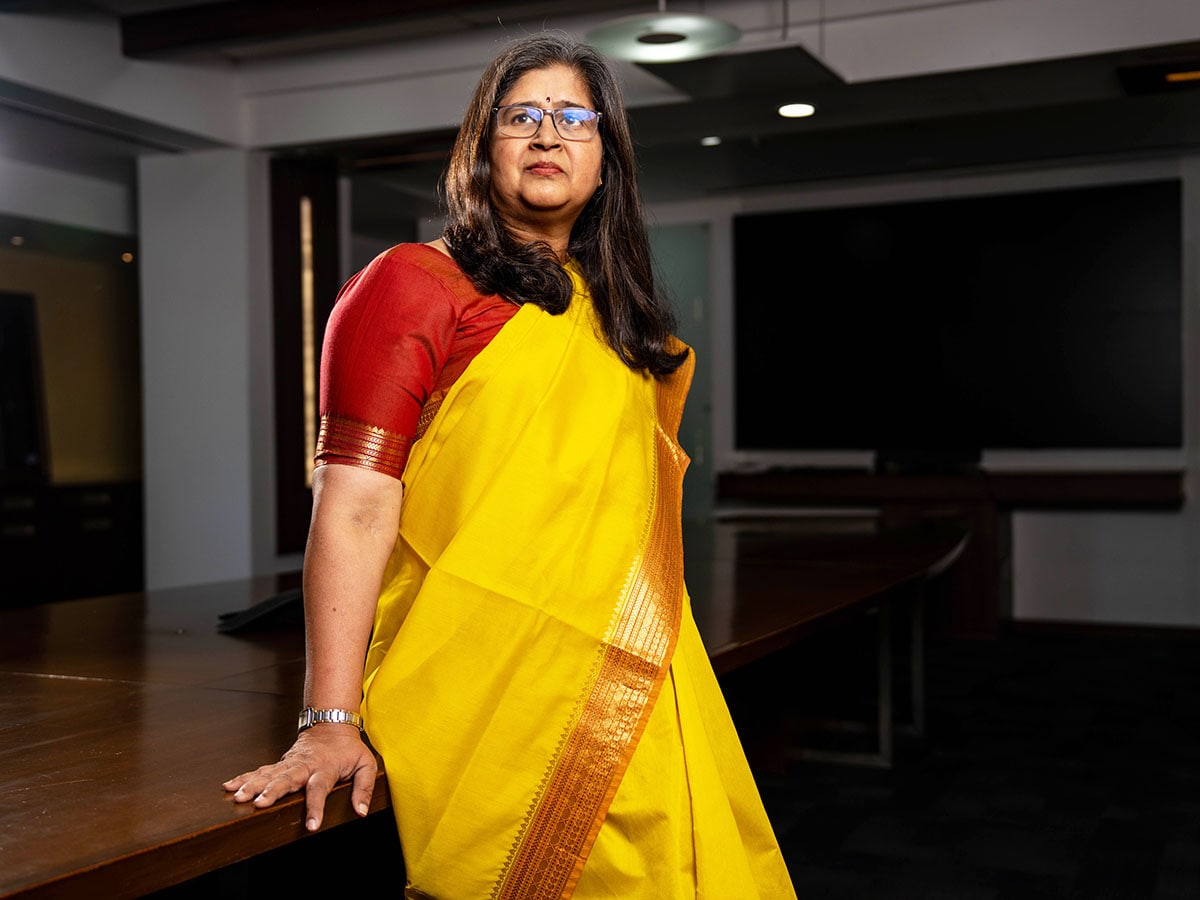 Subhasri, MD and CEO, Shriram Capital Pvt. Ltd. Image: Srimanikandan for Forbes India
Subhasri, MD and CEO, Shriram Capital Pvt. Ltd. Image: Srimanikandan for Forbes India
Subhasri has spent three decades with the Shriram Group, rising through the ranks to become CFO and, more recently, the MD and CEO of Shriram Capital. Throughout her career, she has viewed challenges as opportunities to prove her worth, which she believes is the best way to overcome bias. Bias is a deeply entrenched reality that won’t change overnight. Accept that bias exists and work beyond that, she says. In a conversation with Forbes India, she shares how she views challenges as opportunities and overcomes bias.
2) About leading from the front
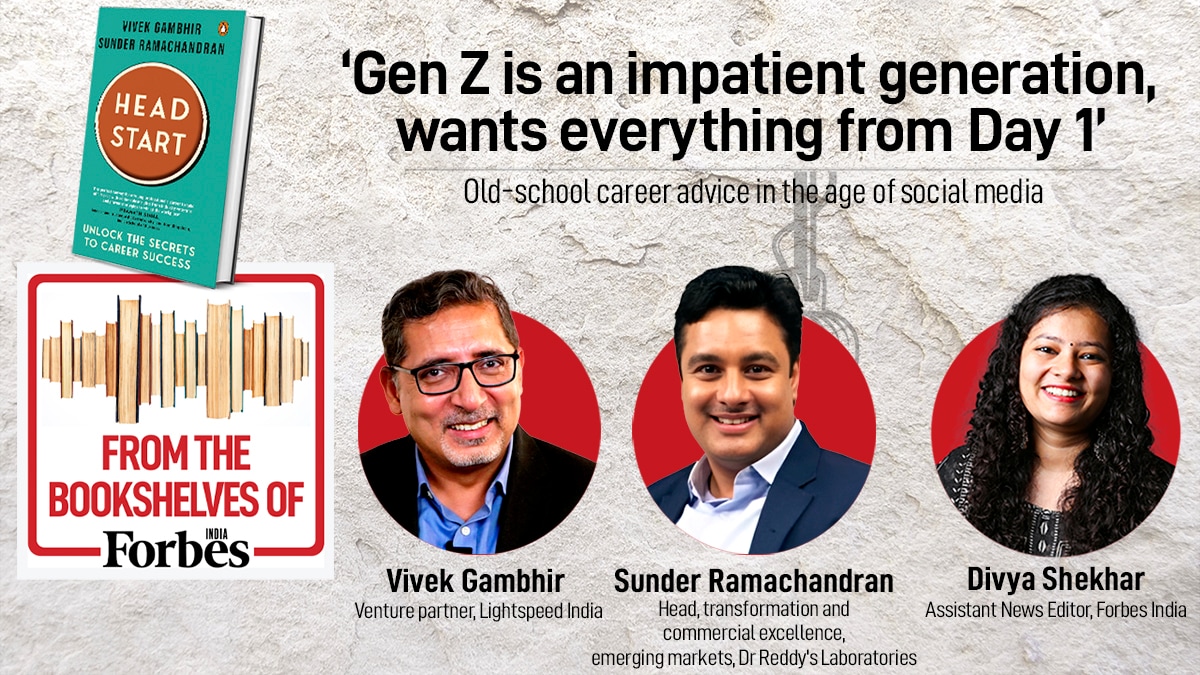
How does AI change our work approach? Are Gen Zs impatient? What does building our own ‘personal board of directors’ mean? Vivek Gambhir, Venture partner, Lightspeed India, and Sunder Ramachandran, Head of transformation and commercial excellence, emerging markets, Dr Reddy’s Laboratories, have found answers to these questions after spending decades in various business leadership roles. For the latest episode of From the Bookshelves of Forbes India, the duo discusses their book HeadStart, which contains their collective wisdom. They also reflect on career strategies they wished they had known when starting out and how their advice is differentiated from a deluge of career tips on social media.
3) All things AI

In the latest edition of Pathbreakers, we talk about all things AI with Srikanth Velamakanni, co-founder and Group CEO of Fractal. “We’ll have extraordinarily powerful AI in four years,” he tells Forbes India to cut out the jargon and demystify how the third major technological wave is transforming our lives. The conversation also covers AI’s dark side and highlights why global governments must collaborate and create safety mechanisms to regulate AI. Plus, Velamakanni opens up about his 25-year journey of building India’s first AI unicorn; from raising the first round of funds from investors to scaling operations across different countries and industries to preparing for D-street debut.
4) The numbers game
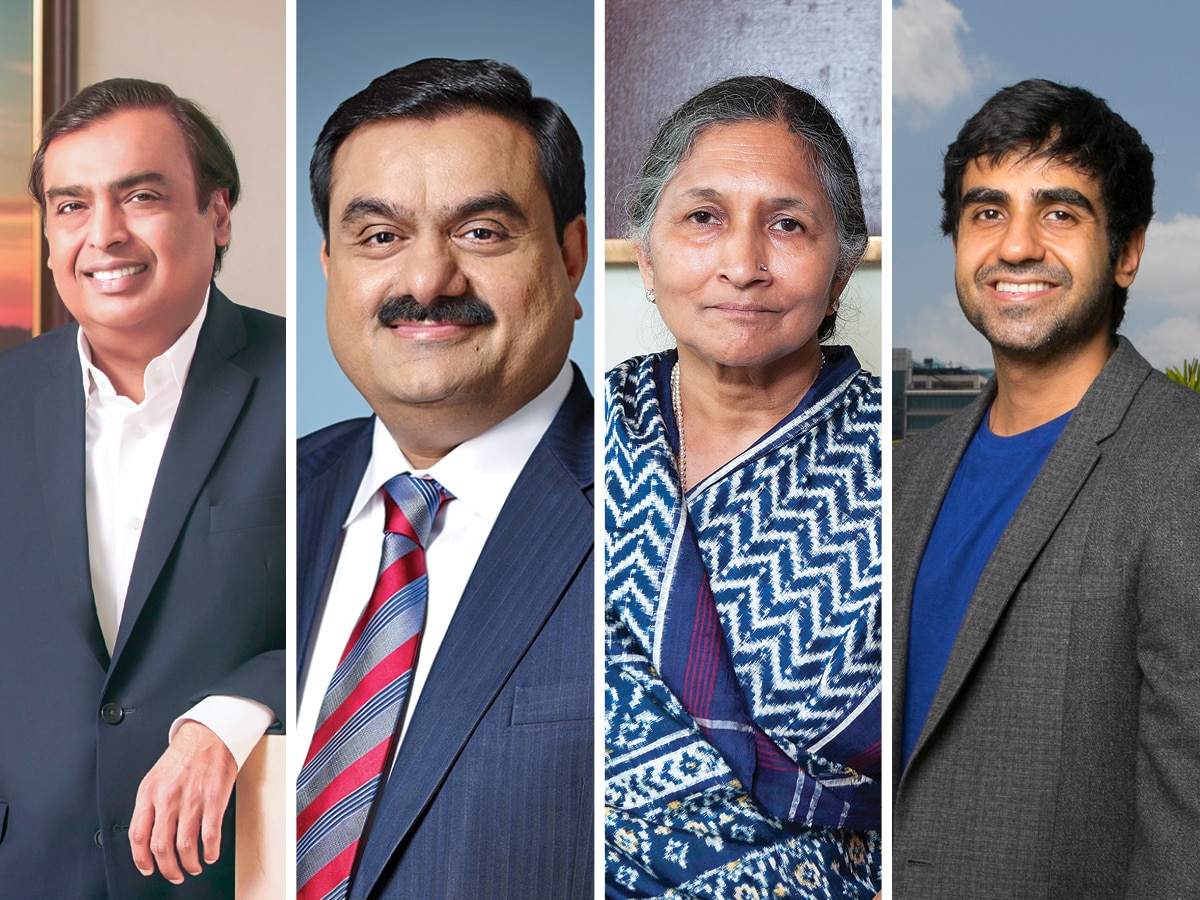 (L-R) Mukesh Ambani, chairman and managing director of Reliance Industries; Gautam Adani, founder and chairman of Adani Group; Savitri Jindal, chairperson emeritus, JSW Steel, and Nikhil Kamath, co-founder, Zerodha.
(L-R) Mukesh Ambani, chairman and managing director of Reliance Industries; Gautam Adani, founder and chairman of Adani Group; Savitri Jindal, chairperson emeritus, JSW Steel, and Nikhil Kamath, co-founder, Zerodha.
India is riding high and is considered a hot spot by global investors after Prime Minister Narendra Modi returned to power for a third term in June, albeit with a coalition, and put the stock market on overdrive. That buoyancy has made the elite club of India’s 100 Richest even more exclusive this year, with the minimum net worth to make the cut-off rising to a record $3.3 billion. So, who is the wealthiest Indian? How many women billionaires are on the list? Who is the oldest? Who is the youngest? Here are some answers
 TS Kalyanaraman, Managing director, Kalyan Jewellers Image: Madhu Kapparath
TS Kalyanaraman, Managing director, Kalyan Jewellers Image: Madhu Kapparath Surender Saluja with son Chiranjeev (right), the managing director of Premier Energies Image: Vikas Chandra Pureti
Surender Saluja with son Chiranjeev (right), the managing director of Premier Energies Image: Vikas Chandra Pureti Ajay Piramal, chairman of PEL Image: Mexy Xavier
Ajay Piramal, chairman of PEL Image: Mexy Xavier



